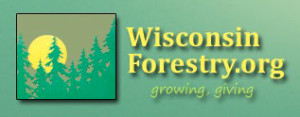 The Wisconsin Council on Forestry has met several times since last fall. Here are a few highlights:
The Wisconsin Council on Forestry has met several times since last fall. Here are a few highlights:
- Work on the Dispute Resolution Process (DRP) was reviewed with discussion and motions to amend the forestry specialist and forestry expert experience qualifications from 15 years to 7 and 10 years respectively, and to clarify the DRP administrator is responsible for conducting background checks on the qualifications. SAF repeated that the qualifications should include Certified Forester credentials but would not hold up the process since this is an interim rule. Charles Mentzel represented SAF on this committee.
- The Council discussed testimony for hearings on proposed forestry legislation AB561, intended to reduce MFL DNR administration costs and law complexity. Another bill, AB559, would lift the leasing ban on MFL properties. Testimony from the Council was for information only and not a statement for or against.
- SAF has the lead for the Forest Economic Summit Goal #7. This initiative has a couple of action items but the one I would like to focus on is the template for stakeholder meetings to discuss issues affecting forest industry. Mark Rickenbach from UW-Extension is willing to help us develop the template but he has some questions about the desired outcome. Please review this draft statement and see if it accurately describes what we intend to get out of the meeting template.
DRAFT STATEMENT: The template design is intended for a series of meetings held regionally, either as a “stand-alone” meeting or in combination with another similar meeting (such as a DNR training session, SAF chapter or state meeting, GLTPA, etc). Each meeting will focus on one specific issue, presenting two sides of each issue and allowing for interactive communication between meeting participants. The meeting goal is to have everyone understanding the issue better from both sides, an exchange of contact information and one of the following: 1) An agreement to either continue dialog with interested parties to effect a change or modification of a guideline, regulation, etc. 2) Change is not pursued and each party agrees with the requirement. Meetings may be held on any issue of concern but the best time to address an issue is before guidelines, rules, regulations, laws, etc. are finalized.
I created a list of possible topics with the goal of selecting one topic and holding a meeting to see how well this process works.
You can find the Council meeting minutes online. The next meeting is scheduled for March 29, 2016.
